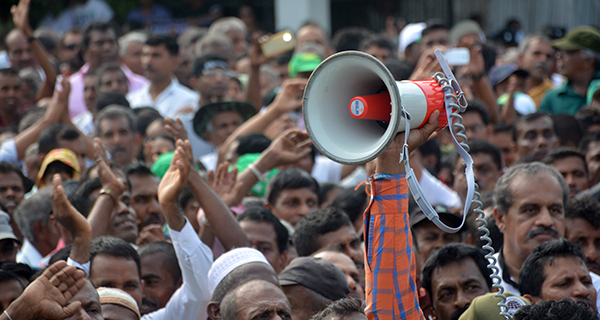Image courtesy of Athiya web site.
Achieving National Unity and Reconciliation requires Multi Partisan Consultations and Acceptance – NPC
The government is proposing to establish an office for national unity and reconciliation by an Act of Parliament in order to assure to every citizen is provided with equal opportunities in the economic, social, cultural and political spheres as given by the constitution whilst safeguarding the identity and to build an inclusive and equitable society in which diversity will be respected and all communities will coexist in harmony and unity. The draft law has been sent to the Sectoral Oversight Committee on Reconciliation and National Unity for its observations. The National Peace Council appreciates the initiative of the Sectoral Oversight Committee to inform civil society that they are open to proposals for revision to be incorporated into the draft law.
The ONUR bill is a broad one encompassing ethnic, religious and social harmony issues. The office that is set up will be mandated to make necessary recommendations to the government and relevant authorities towards achieving national unity, reconciliation, and durable peace in the country and formulate a national policy and national action plan on reconciliation and coexistence.
However, the proposed law has received little or no publicity in the media and its existence is unknown to most of the population. Therefore, we request the government to give more time for public discussion to take place.
The National Peace Council (NPC) expresses concern about certain aspects of the ONUR bill. NPC is concerned about the role given to ONUR to be prescriptive vis a vis civil society by virtue of the power “to guide and facilitate peace and reconciliation programmes conducted by local organisations including community based organisations.” This authority in terms of subjects to monitor and review the work of civil society raises apprehensions about its potential oppressiveness in the context of the national reconciliation policy and action plan. These are genuine fears as even the ICCPR Act that sought to incorporate hate speech provisions prohibited by the International Covenant on Civil and Political Rights into the national law, has been systematically used punitively against those who oppose the government politically.
Another area of concern is the process for appointing the decision-making body of ONUR. As per the current draft, the minister overseeing ONUR will select and the president will appoint the 11 committee members.
Already there are many voices to state that the minorities have been ignored in committees of such nature.
This process raises the possibility of unilateral decision-making and political bias, contrary to the intentions of the 21st Amendment, which aimed to prevent such occurrences. The NPC emphasizes the importance of appointing non-partisan members in line with the spirit of the 21st Amendment.
The laudable objectives outlined in the ONUR bill, such as promoting national unity and peaceful coexistence, require dialogue and negotiation among representatives of diverse communities in Sri Lanka.
The NPC urges the government to engage with opposition political parties, particularly those representing minority ethnic and religious communities, as well as civil society, to establish a multi-partisan consensus, encompassing pluralistic values on the path to make this a true reconciliation process for national unity.
Governing Council/ NPC
